Mucus in Throat After Eating Bread
Many people experience increased mucus production in their throats after eating bread. This is often a sign of an underlying intolerance or allergy to gluten, which is found in many types of bread.
If you experience this symptom regularly, you must consult your doctor to determine the cause.
Your doctor may ask questions about any other symptoms you experience, such as watery eyes, postnasal drip, or throat swelling. It’s also important to note if the phlegm is accompanied by stomachache or rashes.
Your physician may suggest avoiding certain foods that can cause phlegm after eating, such as dairy products and those containing gluten.
There could also be other underlying causes for phlegm in the throat after eating bread, such as acid reflux or exposure to food allergens. In these cases, speaking with your doctor about the best course of action is best.
Proper diagnosis and treatment can reduce your risk of developing excessive mucus from ingesting gluten-containing foods.
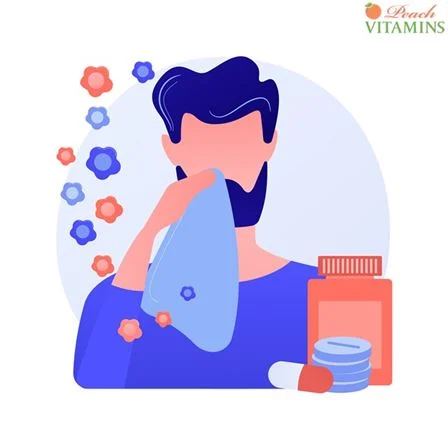
Why Do I Have to Clear My Throat After Eating Bread?
If you’re one of many who experience phlegm after eating bread, you may not realize that wheat is the culprit behind your problem. Wheat contains gluten which causes inflammation in the throat. This inflammation leads to mucus production and, eventually, phlegm.
There are two ways to avoid this problem. The first is to eat whole grains instead of processed foods. Whole grains contain fiber and nutrients that help keep your digestive system healthy. They also reduce the risk of heart disease, diabetes, obesity, and certain cancers.
Another option is to eliminate gluten from your diet. Gluten is found in wheat, barley, rye, spelt, Kamut, triticale, farro, bulgur, couscous, semolina, durum flour, graham flour, and malt.
Gluten is often hidden in processed foods, including bread, pasta, crackers, cookies, cakes, muffins, pizza crust, and pretzels. To find out whether a product has gluten, ask the manufacturer. Many companies now label their products with the words “gluten-free.”
Can Gluten Allergy Cause Throat Problems?
You may have a gluten allergy if you suffer from throat problems after eating bread or pasta. This condition occurs when the body reacts negatively to gluten proteins found in wheat, barley, rye, and oats.
There are two main forms of gluten sensitivity: Celiac Disease and Non-Celiac Gluten Sensitivity (NCGS). Both conditions cause inflammation in the small intestine, which leads to symptoms including bloating, diarrhea, fatigue, joint pain, and abdominal discomfort.
However, there are some differences between these two conditions. While NCGS does not require a strict diet, Celiac Disease requires a gluten-free diet. Also, while NCGS usually resolves within weeks, Celiac Disease can take years to fully recover.
To determine whether you have a gluten allergy, visit a doctor or health professional. They can perform tests to confirm whether you have Celiac Disease or NCGS.
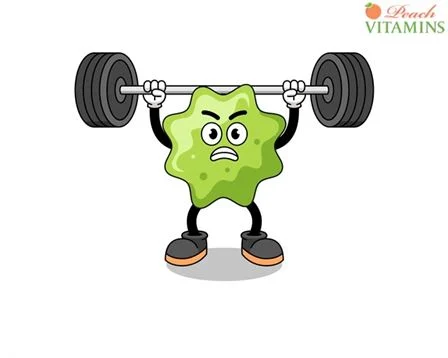
What Are The Symptoms Of Too Much Gluten?
If you’re gluten intolerant, you may experience symptoms after eating bread, pasta, pizza, beer, wine, etc. These include bloating, diarrhea, stomach pain, fatigue, headaches, joint pain, depression, anxiety, and weight gain.
To determine whether you’re gluten intolerant, ask yourself these questions:
- Do you feel bloated after eating bread, pasta, or pizza?
- Does your stool contain blood?
- Is there any abdominal discomfort? Have you ever had diarrhea?
If you answered yes to any of those questions, you should consider eliminating gluten from your diet.
Skin Rashes
In extreme examples, a blue skin coloration on the face and neck is called erythema nodosum. An immune response to bacteria or yeast causes it.
Other rashes include urticaria, dermatitis herpetiformis, and eczema. Urticaria is characterized by redness, swelling, itching, and hives. Dermatitis herpetiformis is a rash that looks like chicken pox but lasts longer than one week. Eczema is a chronic inflammatory skin disorder.
Abdominal Pain
Stomach cramps, nausea, vomiting, constipation, and diarrhea are all signs of allergic reaction symptoms. Silent reflux disease is another type of gastroesophageal reflux disease (GERD) that doesn’t show up as typical heartburn. It’s caused by acid backing up into the esophagus.
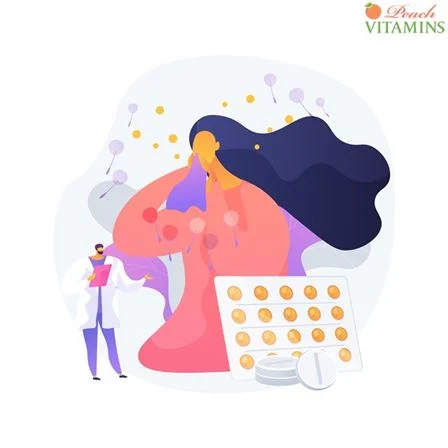
How Long After Eating Gluten Do Symptoms Start?
If you’re gluten intolerant, you may notice symptoms after eating bread. The most common symptoms are a runny nose, a stuffy head, a sore throat, and a cough.
However, there’s no set timeframe for these symptoms to appear. Some people experience them within minutes, others hours later.
Some experts say that the symptoms usually disappear within 24 hours. Others claim that the symptoms last longer than that.
Try keeping track of your symptoms over several days to find out how long your symptoms last. Then compare the results to determine whether you need to avoid gluten altogether.
Mucus in Throat After Eating Food
Throat mucus is a natural defense mechanism that helps protect our throats from inhaled pathogens. However, throat mucus can build up after eating food containing carbohydrates. This causes problems, including soreness, coughing, and difficulty swallowing.
If you’re still experiencing symptoms of throat mucus buildup, try these tips to help reduce them:
- Drink plenty of water. Water flushes out toxins from the body and keeps the digestive system working properly.
- Use a humidifier. Humidifiers moisten the air and help clear mucus from the lungs.
- Gargle with warm saltwater. Saltwater contains minerals that loosen phlegm and ease breathing.
- Take probiotics. Probiotic supplements help restore healthy bacteria in the gut.
- Try peppermint oil. Peppermint oil has been shown to relieve coughs and congestion.
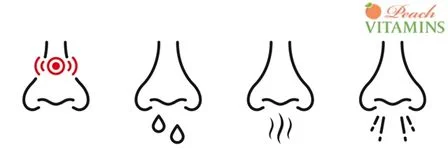
Mucus in Throat After Eating Sugar
Mucus membranes in the mouth also become irritated when we eat too much sugar. This can lead to bad breath, tooth decay, gum disease, and other oral issues.
The best way to prevent these problems is to limit your intake of sugary foods.
Sore Throat After Drinking Alcohol
Alcoholic beverages like beer, wine, and liquor contain alcohol. If you drink too much alcohol, it can cause dehydration, which leads to a dry mouth and throat.
This condition can make it difficult to swallow and breathe through the nose. It can also irritate the lining of the throat, causing swelling and inflammation.
This digestive condition can be treated with simple remedies such as drinking more fluids, gargling with salt water, and using an ice pack on the neck.
Coughing After Eating Foods That Cause Colds
Cold viruses trigger the immune system to produce antibodies when they enter the body. Antibodies are proteins that attack foreign invaders. The immune system produces antibodies against a virus, which triggers a response called immunity.
When cold viruses enter the body, the immune system produces antibodies. These antibodies then travel throughout the body to fight off the invading viruses.
Antibodies attach themselves to the surface of cells and destroy viruses that have entered the body. When this happens, the immune system releases chemicals into the bloodstream that signal the brain to stop producing mucus.
In addition, the immune system sends white blood cells to the area where the virus is located. White blood cells release enzymes that break down the virus.
However, if the cold virus enters the respiratory tract, the immune system may be unable to keep up with the number of viruses entering the body. As a result, the immune system may fail to produce enough antibodies or send enough white blood cells to the site of infection.
Phlegm After Eating Greasy Food
Greasy foods include fried foods, fatty meats, deep-fried vegetables, and oily sauces. These foods tend to clog your sinuses and cause phlegm in the throat.
To avoid these problems, try avoiding greasy foods during meal times. Also, eat small portions at each sitting. This will help prevent overeating and keep your stomach full.
Why Do I Cough After Eating Fast Food?
When we eat fast food, our bodies release chemicals called prostaglandins. Prostaglandins cause inflammation in the lining of our airways, which leads to coughing.
If you’re prone to cough after eating fast food, try avoiding foods that contain ingredients that trigger inflammation. Avoiding these triggers may help prevent coughing.
The increase in blood pressure after eating fast food is another reason why people get sick after eating fast food. Blood pressure increases because the heart has to work harder to pump blood around the body.
Eating fast food causes the heart to work harder than usual. This extra strain on the heart can cause dizziness, lightheadedness, fainting, chest pain, and shortness of breath.
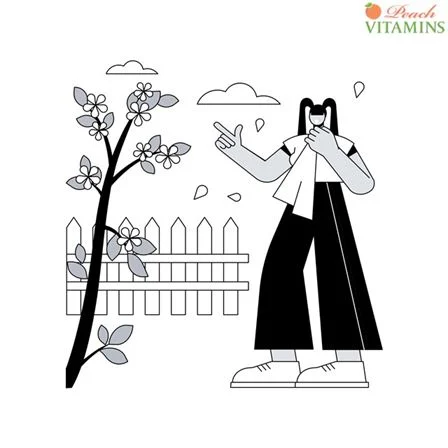
Benefits of Epinephrine
Epinephrine is a hormone produced naturally by our bodies. It helps us fight off stress, anxiety, and panic attacks. But too much epinephrine can cause symptoms similar to asthma, including shortness of breath, chest tightness, coughing, wheezing, and difficulty breathing.
If you’re experiencing these symptoms after eating bread, there’s a good chance you’ve had too much epinephrine. The reason is simple: wheat contains gluten, which triggers the release of epinephrine.
Doses of epinephrine may also be found in some medications used for treating asthma. However, it’s important to note that taking epinephrine as prescribed is safe. It’s one of the most effective treatments available for asthma.
Clinical Diagnosis: Get Diagnosed Quickly and Easily
An accurate allergy diagnosis is essential to finding relief from allergy symptoms. Unfortunately, many doctors don’t know how to diagnose allergies quickly and easily.
That’s why it’s so important to find a doctor who understands all types of allergies. A doctor specializing in diagnosing allergies should be able to determine whether you have seasonal allergies, food allergies, environmental allergies, or other allergies.
A specialist can also diagnose an allergic reaction by getting a blood sample and testing it for specific allergens. If you suspect you have an allergy, ask your doctor about having a skin test done. Skin tests are quick and easy to perform. They allow your doctor to identify what type of allergy you have.
A diagnosis of celiac disease requires a biopsy of the small intestine. Your doctor may recommend this procedure if you have persistent diarrhea, unexplained weight loss, abdominal pain, fatigue, or other gastrointestinal complaints.
A doctor who specializes in diagnostics can also tell you when you need to see an allergist. An allergist is specially trained to treat allergies. They can prescribe over-the-counter medication and recommend changes in lifestyle habits to reduce your risk of developing more severe allergies.
Final Thoughts
Having phlegm in throat after eating bread is not uncommon. There are several reasons why this happens. Some of them include the following:
- Allergies
- Food sensitivities
- Stress
- Poor diet
- Smoking
- Medications
- Excessive consumption of alcohol
However, to avoid getting phlegm in the throat, you must first understand the underlying causes. Schedule a free consultation with Ayurvedic practitioner Cosmic Mike to learn more about overcoming food allergy symptoms.
